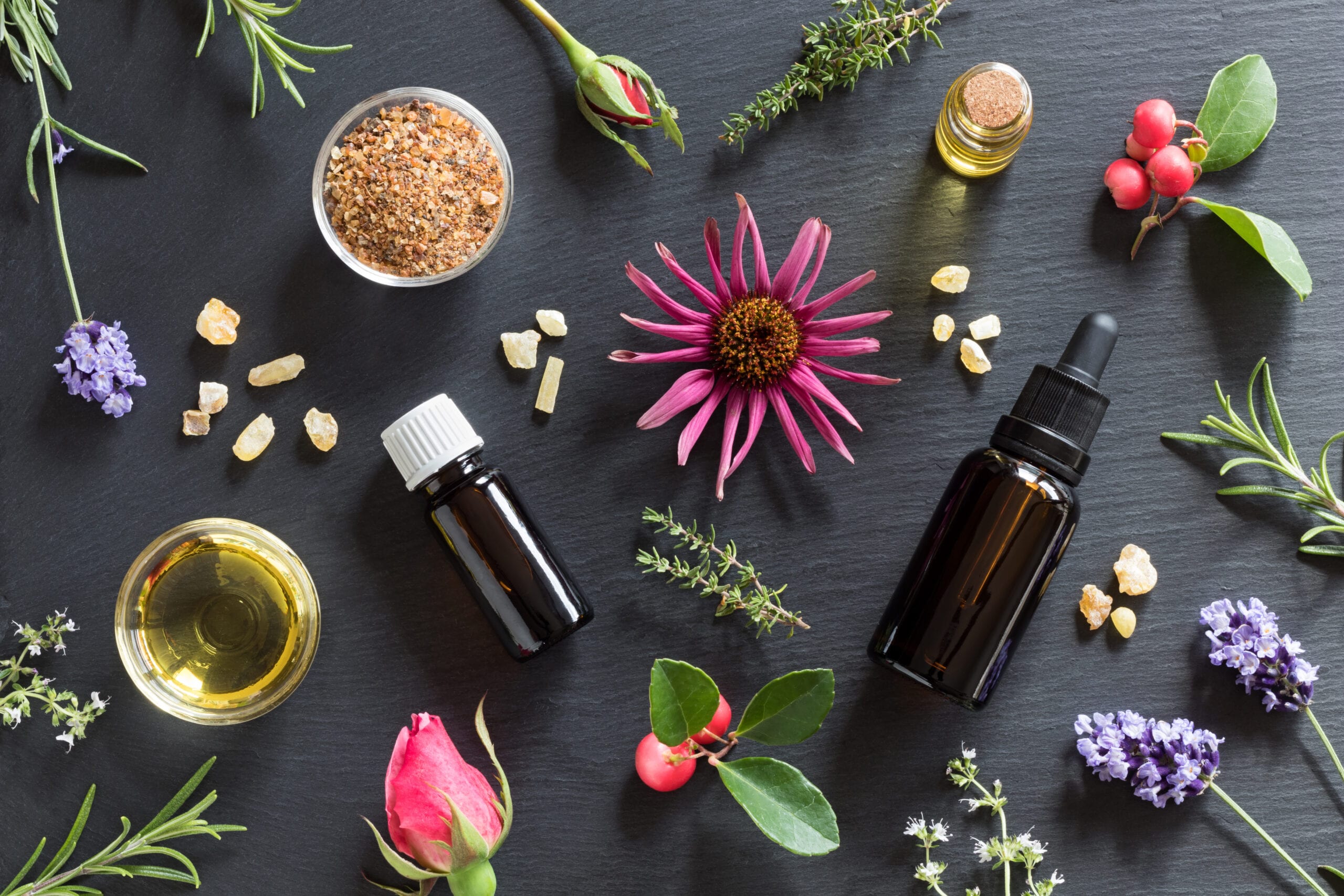
The Essential Facts On Essential Oils
Can essential oils really cure diseases? Find out today.
By Mia Bencivenga
October 6, 2020
It’s safe to say that essential oils are all the rage these days, and it’s common to find them for sale in stores, online, or even through a friend.
Many of these sellers attribute fantastical health and wellness claims to essential oils.
But are they worth the hype? And if not, what can you use them for, anyway? Here’s a quick rundown on some essential oils.
First things first, what are essential oils?
Essential oils are compounds extracted by plants that capture their scent or essence.They are also known as volatile oils, ethereal oils, or simply the oil of the plant from which they’re derived.
They’re extracted through non-chemical means. Typically, you get essential oils using the cold-pressed method, but you can also use water or steam to extract them.
Despite similar packaging and marketing, essential oils are NOT the same as fragrance oils. Fragrance oils are synthetic scents with added chemicals to enhance the aroma. Fragrance oils also tend to be less expensive but may not carry the beneficial properties of essential oils.
Okay, so what are essential oils used for?
The biggest thing you can use essential oils for are relaxation and aromatherapy.
Essential oils can also be a fun way to make your own candles, perfumes, air fresheners, or even all-purpose cleaners. Tea tree oil, for example, has antimicrobial effects. When diluted sufficiently and combined with vinegar, you can make your own all-natural cleaner — just do your research on what surfaces it’s okay to expose to the oils and vinegar.
You’ll also find essential oils frequently used in massages, typically when combined with another carrier oil. Which brings us to another important point: do not apply essential oils directly to your skin, as they can cause bad reactions and irritation. Always combine with a carrier oillike almond, jojoba, shea butter, and or olive oils.
If you want to put essential oils directly onto your skin, remember that your skin will absorb both the good and bad from the oils, so always do a test patch to gauge your body’s reaction.
I have heard that essential oils have medicinal effects — is this true?
Many sellers of essential oils purport the positive effects essential oils have on a range of illnesses. One of the most popular claims is that essential oils are good for anxiety and mood disorders.
If someone says their essential oils will cure a disease, be extremely wary. They may claim that their product can cure various illnesses to make sales — which is at the very least, dishonest, and at the very worst, dangerous.
Although some people may swear that essential oils have helped them — and that very well may true — it’s difficult to test the effectiveness of essential oils on mental health, as smells can trigger different reactions in different people. People with respiratory issues, for example, should only use essential oils under the guidance of a doctor.
If you find essential oils help you, that’s great news. But do not take essential oils in place of therapy and medicine. In general, the more something has been studied, the safer it is for people to use it. There simply isn’t enough evidenceto suggest that essential oils can effectively treat physical and mental health issues.
The same goes for headaches and migraines. Although there have been studies on peppermint and lavenderhaving a positive effect on migraines, there aren’t enough to make a definitive ruling on whether it’s truly effective. In some cases (like my own) strong smells make the pain worse.
The big takeaway on essential oils
Essential oils are naturally derived from plants and can be a great way to unwind, relax, clean, craft, or even feel a little better. But like all things in the wellness sphere, just make sure you’re doing your research and using your best judgment.

Excellent post…I love this, and need to read it again! you have the basics laid out so clearly! Great job.
Oh, I love this, and need to read it again! you have the basics laid out so clearly! Great job,
Thanks so much for your kind words!
I’m going to save this post for reference over and over.
NATURAL ESSENTIAL OILS are used in every aspect of our daily life. ESSENTIAL OILS are USED
in the cosmetics and industrial fields, particularly in the perfume industries,
which are expanding rapidly.
Excellent post and wonderful blog, this sort of interesting posts I really like, keep it up…
This post can serve as a helpful introduction for those who are new to essential oils or looking to deepen their knowledge. It’s essential to always consult a qualified healthcare professional before using essential oils, especially if you have any medical conditions or are pregnant or breastfeeding.